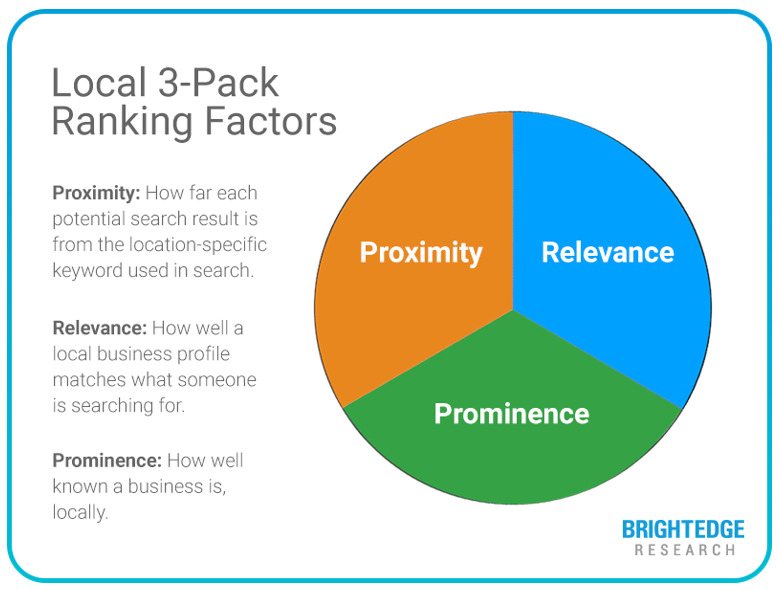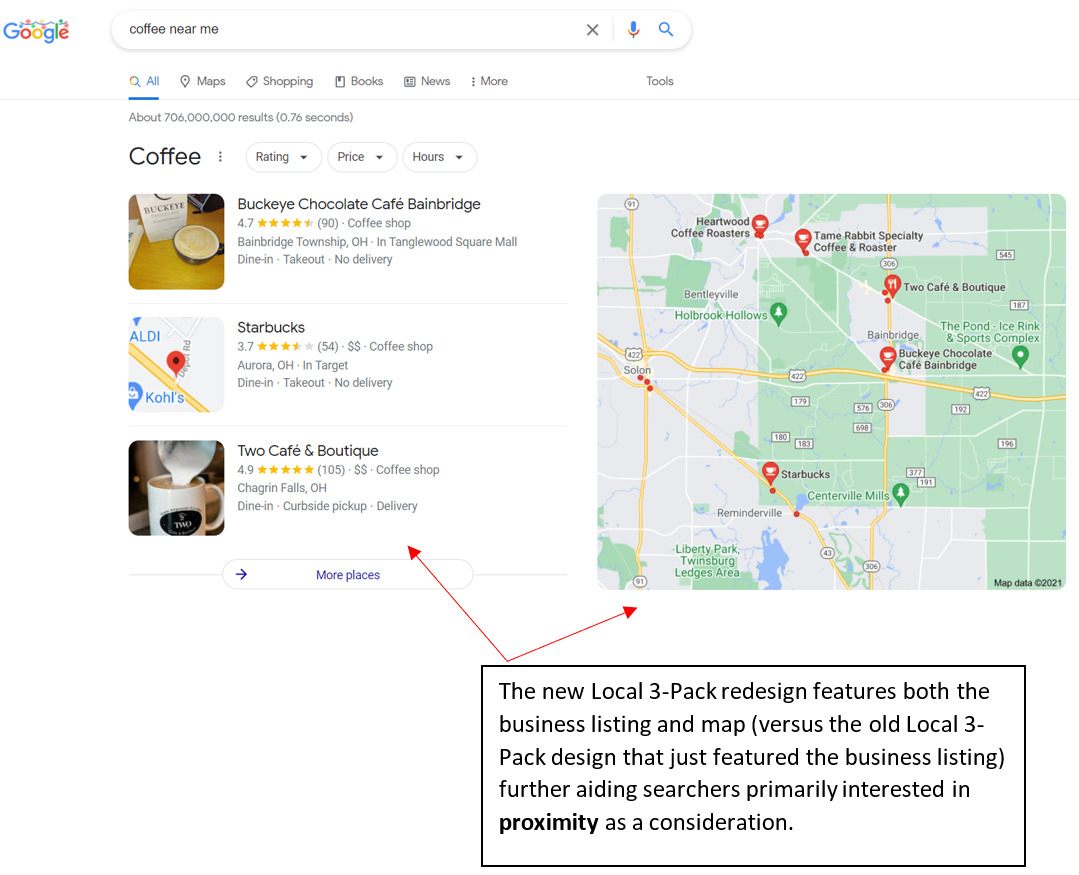
30-second summary:
- With several Google algorithm updates in 2021 its easy to fall into a dangerous trap of misconceptions
- One factor that still remains constant is the value Google places on great content
- Core Web Vitals aren’t the end-all of ranking factors but a tiebreaker
- Read this before you create your SEO strategy for 2022!
The year 2021 was a relatively busy one for Google and SEOs across the world. The search engine behemoth is improving itself all the time, but in this past year, we saw a number of pretty significant updates that gave digital marketers cause for paying attention. From rewarding more detailed product reviews to nullifying link spam, Google keeps thinking of ways to improve the user experience on its platform.
Speaking of user experience: the biggest talking point of the year was June’s Page Experience update, which took place over a few months and notably included the Core Web Vitals.
After that happened, tens of thousands of words were published around the web instructing people on how to modify their websites to meet the new standards.
Mobile-friendliness became even more important than before. Some more inexperienced SEOs out there might have started looking to the Core Web Vitals as the new be-all ranking factor for web pages.
With all this new information on our hands since last year, it’s possible that some misconceptions have sprung up around what is good and bad for SEO in 2022.
In this post, I want to bring up and then dispel some of the myths surrounding Google’s bigger and more mainstream 2021 updates.
So, here it is – the not-so-SEO checklist for your 2022. Here are three of the things you shouldn’t do.
1. Don’t prioritize Core Web Vitals (CWV) above quality content
It’s no secret that Google’s Core Web Vitals are among the elements you’ll want to optimize your website for in 2022 if you haven’t done so already.
As a quick reminder, the Core Web Vitals are at the crossroads between SEO and web dev, and they are the measurements of your website’s largest contentful paint, first input display, and cumulative layout shift.
Those are the parts of your website that load first and allow users to start interacting with the site in the first few milliseconds. Logic tells us that the slower your load times are, the worse your site’s user experience will be.

First of all, this isn’t exactly new information. We all know about page speed and how it affects SEO. We also know how vital it is that your Core Web Vitals perform well on mobile, which is where around 60 percent of Google searches come from.
Google takes its Core Web Vitals so seriously as ranking factors that you can now find a CWV report in Google Search Console and get CWV metrics in PageSpeed Insights results (mobile-only until February of 2022, when the metrics roll out for desktop).
Given that, why am I calling it a misconception that Core Web Vitals should be at the top of your SEO-optimization checklist for 2022?
It’s because Google itself has explicitly stated that having a top-shelf page experience does not trump publishing killer content. Content is still king in SEO. Being useful and answering user questions is one of the most crucial ranking factors.
So, it’s a misconception that Google will not rank you well unless your Core Web Vitals are all in solid, healthy places.
However, having it all is the ideal situation. If you have great web content and optimized Core Web Vitals, you’ll probably perform better in organic search than would a page without strong Core Web Vitals.
In 2022, therefore, work on your Core Web Vitals for sure, but develop a detailed content marketing plan first.
2. Don’t assume your affiliate product-review site is in trouble
Another misconception that might have followed from a 2021 Google update is that affiliate sites, specifically product-review sites, were in some hot water after the Product Reviews update from April.
Google meant for the update to prioritize in-depth and useful product reviews over reviews that are spammy and light on details. In other words, just as in organic search, higher-quality content is going to win here.
If there was ever a point when someone actually made money by running a shady, low-quality affiliate site that featured nonsense product reviews that were then essentially spammed out to thousands of people, Google’s April 2021 product reviews update started to kill that.
The search engine now prioritizes long-form, detailed reviews, the kind that generates trust from users. Those are the types of affiliate content that stand to benefit from Google’s update, while the spammy sites will continue to vanish from top rankings.
Therefore, we can forget about the misconception that good, honest, hard-working affiliate product reviewers would somehow be hurt by the update.
As long as you are presenting something relevant and legitimately useful to users, you may have even seen your rankings rise since the April of 2021.
3. Don’t assume Google will rewrite all your titles
The last misconception I want to address here is the idea that you don’t need to put effort into your pages’ title tags because Google is going to rewrite them all anyway following its August of 2021 title tag-rewrite initiative.
First, some explanation. Back in August, many of you know that SEOs across the industry started noticing their page titles being rewritten, as in, not as they had originally created them.
Google soon owned up to rewriting page titles, but only those it believed were truly sub-par for user experience. In Google’s view, those junky title tags included ones that were stuffed with keywords, overly long, boilerplate across a given website, or just plain missing.
But SEOs still noticed that seemingly SEO-optimized title tags were still being rewritten, and the new titles didn’t always come directly from the original title. Sometimes, as Google has been doing since 2012, the search engine would use semantics to rewrite a title to be more descriptive or just simply better.
In other cases, Google’s new titles came from H1 text, body text, or backlink anchor text.
Google saw these efforts and still does, as one great way to improve user experience during the search.
Many SEOs, however, did not see it that way, especially given that Google’s rewrites were sometimes responsible for drops in traffic.
To put it mildly, there was uproar in the SEO community over the change, so much so that Google explained itself a second time just a month later, in September 2021.
In that blog post, Google said that it uses marketers’ own title tags 87 percent of the time (up from just 80 percent in August). The other 13 percent would be rewrites done to improve:
- too-short titles,
- outdated titles,
- boilerplate titles,
- and inaccurate titles.
And now to bring things back to the crux of this: it is a misconception that you’re wasting your time writing title tags after August of 2021.
Google does not actually want to rewrite your title tags. It clearly stated this in its September blog post.
What Google wants is for you to write high-quality page titles on your own, ones that are descriptive, truthful, and useful. Give users what they need, and Google will leave your titles alone.
However, throw a bunch of keywords in there, or use boilerplate titles all over your site, and you can expect Google to do some cleaning up on your behalf. The trouble is, you may not personally like the results.
Title tags matter in SEO, big time. Don’t think that your efforts are futile just because of the 2021 change. Focus on creating title tags that matter for users, and you should be just fine.
Going forward
The three misconceptions I have covered here can be dangerous to fall into in 2022.
Now, are Core Web Vitals, quality affiliate links, and title tags important to Google? You can bet they are. But SEOs also just have to be smart when approaching these matters. Everything Google Search Central does has the user in mind.
Optimize for Core Web Vitals, but still, put quality content creation first.
Run your affiliate marketing site, but ensure the reviews are useful.
And write amazing SEO title tags so that Google won’t want to rewrite them.
Following these guidelines can only help you in the year to come.
Kris Jones is the founder and former CEO of digital marketing and affiliate network Pepperjam, which he sold to eBay Enterprises in 2009. Most recently Kris founded SEO services and software company LSEO.com and has previously invested in numerous successful technology companies. Kris is an experienced public speaker and is the author of one of the best-selling SEO books of all time called, ‘Search-Engine Optimization – Your Visual Blueprint to Effective Internet Marketing’, which has sold nearly 100,000 copies.
Subscribe to the Search Engine Watch newsletter for insights on SEO, the search landscape, search marketing, digital marketing, leadership, podcasts, and more.
Join the conversation with us on LinkedIn and Twitter.

















 The three factors determining rankings for local searches are: proximity, relevance, and prominence. While Google doesn’t disclose the precise weighting of each factor, it is evident that with the rebalancing, proximity is taking on greater weight. These changes could impact your business listing in local search.
The three factors determining rankings for local searches are: proximity, relevance, and prominence. While Google doesn’t disclose the precise weighting of each factor, it is evident that with the rebalancing, proximity is taking on greater weight. These changes could impact your business listing in local search.

